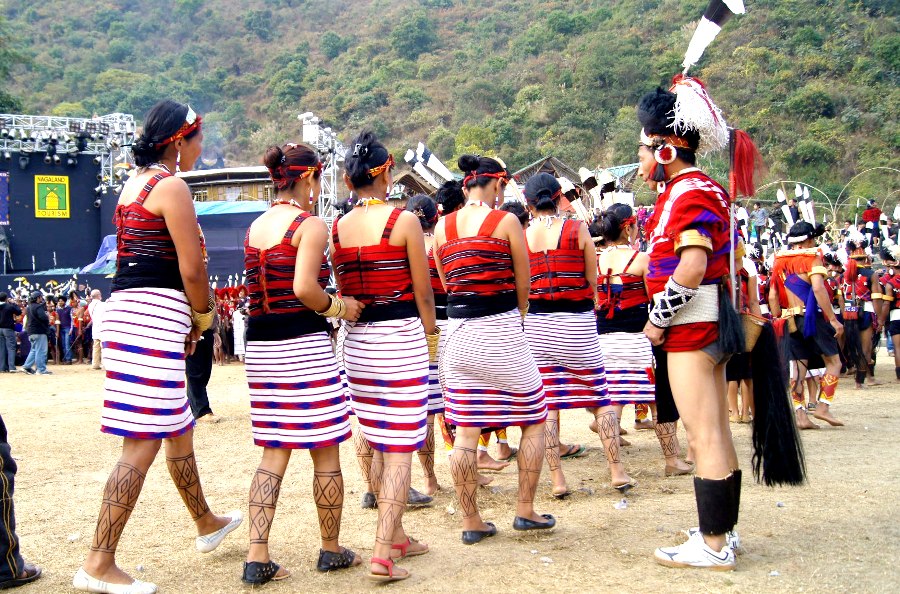| Not many states of India’s ethnically rich Northeast perhaps as vibrant and colourful as Nagaland is. This is a lustrous land of once brave warriors who fiercely protected their land, natives who has held on to traditions amidst changing times with great pride of their respective ancestry. For a true Naga nothing matters more than the word-of-mouth, nothing matters more than their tradition which has taught them to extend warm hospitality to a guest who knocks at their door with an openness of being. With changing times tigers may not dance across the Naga terrain, Hornbills still do, when they woo.
Organized by the State Tourism and Art & Culture Departments of Nagaland, Hornbill Festival showcases a mélange of cultural displays under one roof at a model village built at Kisama, a western Angami location situated 12 kms away from Kohima, the capital of Nagaland. History abounds in every nook and corner of the terrain here. Kisama falls on the historically famed Kohima-Imphal Road, now a busy highway cutting through Angami hamlets connecting Dimapur with Manipur, once the theatre of the fiercest of battles fought between the defending British forces and an advancing Japanese army during World War II.
The Hornbill Festival takes place between the 1st December, which happens to be the Nagaland Formation Day, till the 7th of December, annually. Recently, seeing its grand success and achievement at attracting tourists from far and wide from across India and abroad, the Hornbill Festival has been extended by another three days till the 10th of December. The aim of the festival is to revive and protect the rich culture of Nagaland and display its extravaganza and traditions.
For visitors it means a closer understanding of the people and diverse culture of Nagaland, and an opportunity to experience Naga food which is no less varied, as are the songs, dances and customs of the place. This colourful festival is a certain paradise for a foodie, particularly if one happens to be a non- vegetarian. Nagas love to feast and feed, and at Kisama one can try all kinds of Naga traditional food and also watch them being made during the Hornbill Festival days. Tourists are welcomed warmly to the traditional huts of each tribe showcasing respective traditions. For those interested, one may seat with the youths and elderly people of the tribes alike and interact with them. One can also take part in various contests such as Naga chilly eating, pork eating besides traditional games and other traditional competitions. |

